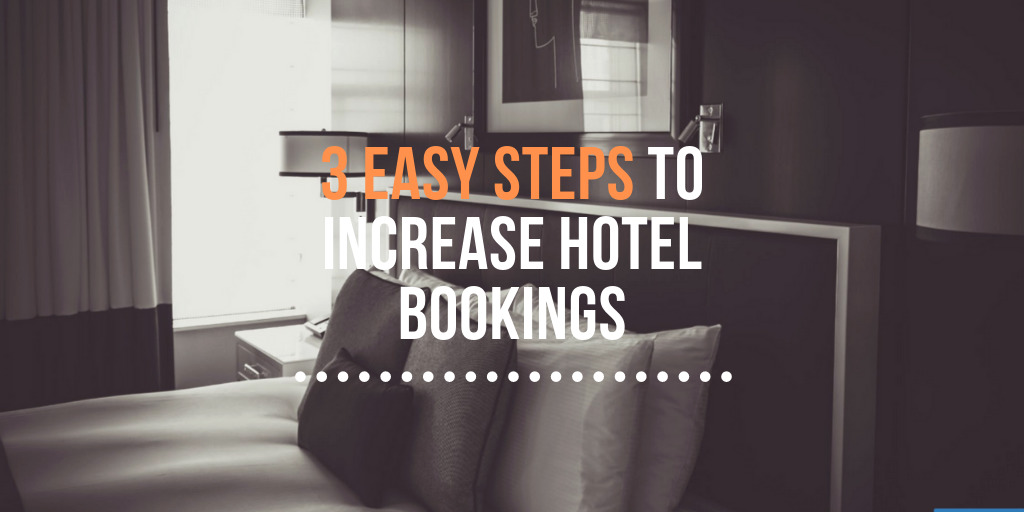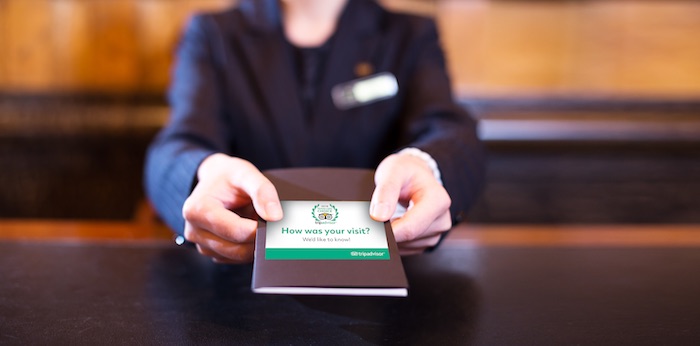
3 EASY STEPS TO INCREASE HOTEL BOOKINGS
As the hospitality industry experiences one of its largest growth periods, hotels around the world are increasingly faced with challenges such as implementing value upgrades, staying ahead of the competition and maintaining a high level of room occupancy.
Of course, that’s much easier said than done. Keeping up with competitors and integrating technological updates is no easy task. That being said, there are a few key areas every hotelier can focus on to strengthen their position in the market and increase their success in attracting new guests.
Below are a few easy steps hotels can take to increase room bookings with both new and repeat guests.
ADAPT TO A TECHNOLOGICAL WORLD
Mobile technology has changed the way we live, interact and communicate, making it a key element of a hotelier’s success. Tech trends affect not only the hospitality industry but practically every business sector whether it’s B2B or B2C.
Adapting hotels with the right tech upgrades can assist hotel owners to manage their properties more efficiently and address the many requests guest make during their stay.
Taking into account that most travelers own at least one smartphone, upgrading a hotel with a branded mobile app provides an intelligent and personalized experience for today’s tech-loving guests. Leading hotel brands such as Marriott and Hilton have already fully embraced this trend with nearly every other hotel brand looking at how a similar strategy can help them provide a more attractive platform to capture occupancy for their hotels.

In addition to enhancing the guest experience, it’s also a great way to reduce operational costs and improve the overall efficiency of a property. For example, replacing traditional keys and key cards with keyless guest entry provides the modern traveler with perks they want such as mobile check-in, room access and mobile check-out to reduce (or eliminate) the time spent in front desk queues and improve the security of their guestroom access. At the same time freeing up front desk staff to provide a better guest experience focused on service-related issues instead of toll-gate tasks such as encoding room keys or replacing them when they don’t work.
BE METICULOUS ABOUT CUSTOMER REVIEWS
Until recently a hotel’s reputation was slowly built up over time through word of mouth and traditional marketing campaigns. Prior to the proliferation of social media, the impact of a guest’s negative experience was largely limited to their immediate social circle. Today, it’s a whole other story. Online review platforms like TripAdvisor and Yelp allow guests to share their experiences easily, authentically, and immediately.
Focusing on customer satisfaction has always been important in the hospitality industry, however, the impact of social media has amplified every guest’s voice to the point where a single negative experience can have a disproportionate effect on your bottom line.

The first step towards positive guest reviews is, of course, providing exceptional guest experiences. Asking guests to share (positive) online reviews, however, can be a tricky task. Hoteliers can and should come up with creative ways to encourage them to share their experiences.
A good starting point to determine what might motivate your guests to leave a review is to determine which of them would be most likely to do so. Statista confirms that 52% of internet users aged 25-34 have posted reviews online, research by Kyung Hyan Yoo and Ulrike Gretzel of Texas A&M University found that, of over 1000 TripAdvisor users, 41.3% of those who contributed reviews were between 50 and 64 years of age, making up the largest demographic of the study.
FOCUS ON THE RIGHT MARKETING CHANNELS
A few years ago, investing ad spend in two or three major accommodation platforms was enough for hoteliers to attract guests and generate new bookings. Today, social media channels have rapidly changed the game. While Facebook remains the dominant social platform for most online engagement, YouTube, WhatsApp, WeChat and Instagram are quickly gaining ground among millennials and other young travelers.
Depending on your property’s target audience, you might want to promote it through new marketing channels. A youth hostel, for instance, can make extensive use of Instagram stories and team up with influencers to promote itself. On the other hand, luxury hotels should consider social channels such as LinkedIn ads and targeted YouTube channels.

Choosing the right channels to promote your property on and investing in creating quality content can help hoteliers strengthen their position in the market and make their brand stand out from the competition.
Although the number of potential marketing channels can seem overwhelming, hotels today have an incredible opportunity to capitalize on the unique characteristics of each channel to convey a broader and more engaging view of their property than ever before. So much variety in messaging channels also opens up the ability for hoteliers to target very specific traveler segments that might be exceptionally good fits for the hotel product. Hotels in unique destinations or locales have an even greater opportunity to truly showcase what makes their property special and worth the extra effort to experience.
